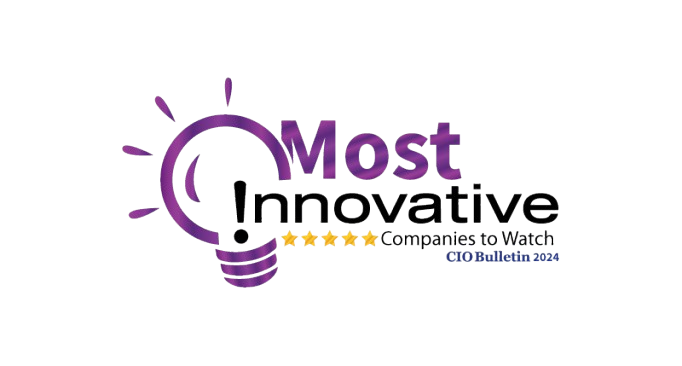The Importance of Digital Transformation in Law Firms and the Evolving Legal Service Market
June 3, 2023
In today's rapidly changing digital landscape, the importance of digital transformation for law firms cannot be overstated. As the legal service market continues to evolve, embracing digital technologies has become crucial for firms aiming to stay competitive, improve efficiency, and provide exceptional client experiences. In this article, we delve into the significance of digital transformation in the legal industry, highlighting key trends, benefits, and strategies that law firms can adopt to successfully navigate this transformative journey.
Embracing Digital Transformation
Digital transformation encompasses the integration of digital technologies into various aspects of a law firm's operations, processes, and client interactions. This paradigm shift offers numerous advantages, enabling law firms to streamline their workflows, enhance collaboration, access real-time data, and leverage automation to drive efficiency. Furthermore, it empowers legal professionals to deliver services more effectively and efficiently, ultimately benefiting both the firm and its clients. Key Trends Shaping the Legal Service Market
Automation and Artificial Intelligence (AI):
Automation and AI technologies are revolutionizing the legal landscape. Machine learning algorithms can analyze vast volumes of legal data, enabling faster document review, contract analysis, and legal research. AI-powered chatbots provide efficient client support, offering immediate responses to frequently asked questions and freeing up lawyers' time for more complex tasks.
Cloud Computing: The adoption of cloud-based solutions allows law firms to securely store, access, and share files and documents from any location, facilitating seamless collaboration among team members. Cloud computing also provides scalability, cost-efficiency, and robust data protection measures.
Data Analytics: Leveraging big data and analytics tools enables law firms to gain valuable insights into legal trends, client behavior, and case outcomes. By analyzing historical data, firms can make data-driven decisions, identify patterns, mitigate risks, and optimize their overall performance.
Cybersecurity: With the increasing digitization of legal processes, robust cybersecurity measures are paramount. Law firms handle sensitive client information, making them attractive targets for cyberattacks. Implementing state-of-the-art cybersecurity protocols ensures data protection, client confidentiality, and safeguards the firm's reputation.
The Benefits of Digital Transformation in Law Firms
Enhanced Efficiency:
Digitizing repetitive tasks and automating workflows accelerates the delivery of legal services, reduces errors, and minimizes administrative burdens. Time-consuming activities such as document drafting, billing, and research can be streamlined, enabling lawyers to focus on high-value, complex matters.
Improved Client Experience: Digital transformation enables law firms to provide personalized, responsive, and convenient client experiences. Online portals, client management systems, and secure communication channels facilitate seamless interactions, fostering trust, and satisfaction. Clients can access case updates, securely share documents, and communicate with their legal teams at their convenience.
Cost Optimization: By embracing digital technologies, law firms can significantly reduce costs associated with paper-based processes, physical storage, and inefficient workflows. Streamlining operations through automation and cloud-based solutions allows firms to optimize resource allocation, enhance profitability, and remain competitive.
Agility and Adaptability: Digital transformation equips law firms with the agility to adapt to evolving market demands. By embracing innovation, firms can stay ahead of competitors, identify new opportunities, and proactively address industry disruptions. Adapting to digital practices ensures future relevance in an increasingly tech-driven legal landscape.
Strategies for Successful Digital Transformation
Develop a Comprehensive Digital Strategy:
Prioritize the formulation of a clear digital strategy that aligns with the firm's goals and values. Identify specific areas for improvement, set achievable milestones, and ensure buy-in from all stakeholders.
Invest in Robust Infrastructure: Implementing a reliable IT infrastructure is vital for successful digital transformation. This includes selecting the right hardware, software, and cloud-based solutions that can seamlessly integrate with existing systems and support future scalability.
Promote a Digital Culture: Foster a culture that embraces change, encourages innovation, and promotes digital literacy among staff members. Provide training and resources to ensure that everyone within the organization can effectively leverage digital tools and technologies.
Prioritize Data Security: Protecting sensitive client information is paramount. Implement robust cybersecurity measures, including secure access controls, encryption, regular audits, and staff training on best practices for data protection.
Conclusion
In an era of rapid technological advancements, law firms must embrace digital transformation to stay competitive and meet the evolving needs of their clients. By integrating digital technologies into their operations, law firms can enhance efficiency, improve client experiences, optimize costs, and remain agile in an ever-changing legal landscape. By adopting a comprehensive digital strategy, investing in the right infrastructure, and fostering a digital culture, law firms can navigate the path to successful digital transformation, positioning themselves at the forefront of the legal service market.Featured Resources
Check Our Latest Resources

Proven ROI has been recognized as one of the Most Innovative Companies to Watch 2024 by CIO Bulletin—a testament to the company’s forward-thinking approach to CRM investments and strategic partnerships. By working closely with leading CRM platforms like HubSpot, Proven ROI is revolutionizing how businesses manage customer relationships, scale their operations, and drive growth.



